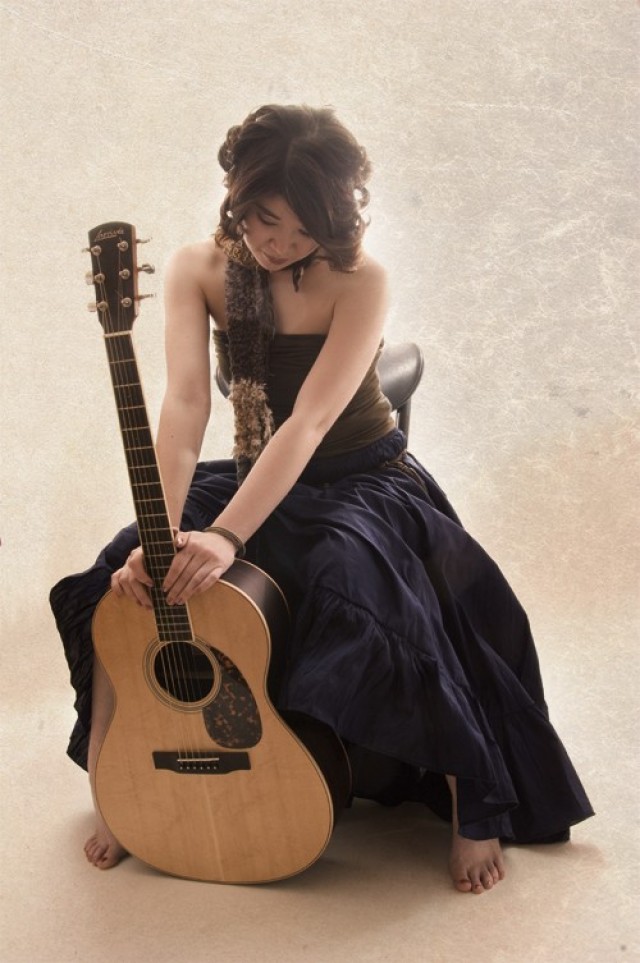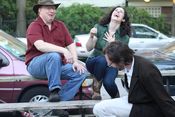Left Turn at Albuquerque will support Dawn Xiana Moon’s CD Release Party April 7, 2012 at the ViaDuct Theater, 3111 North Western Avenue Chicago, IL 60618, along with Common Shiner. Filling out the eclectic bill and making the event a music and art showcases are Read My Lips Belly Dancers and art by Loni Diep.
Left Turn At Albuquerque is a synthesis of 70s folk, 60s pop and classic rock, with lyrics that are not quite Shakespeare but are more than bubblegum (not that there’s anything wrong with bubblegum pop, it’s a not-so-guilty pleasure). Relying on intricate guitar fingerwork, sultry piano and well-thought-out lyrics, songwriters and co-lead singers Jeff Churchwell and Sarah Scanlon work all sides of the street to bring you music that refuses to sit in a single niche, but rather appeals to a wide variety of tastes and age groups. Bassist Joe Nemec rounds out the core of the band very tastefully, with groove and soul one minute, and rock and punch the next. Left Turn At Albuquerque is a detour well-worth taking.
A seductive and passionate voice, evocative songwriting, and formal training make Dawn Xiana Moon one of the most distinctive Asian-American singers of her generation. With influences ranging from traditional Chinese music to modern American folk, she bridges the musical traditions of the East and West.

Recently, the singer-songwriter began exploring her roots, fusing elements from traditional Chinese music with her signature blend of folk, pop, and jazz. The result is a musical brew in several languages that draws influences from sources as disparate as Han Dynasty literature and Americana. In Spaces Between, traditional Chinese melodies hover on top of lush layers that take a cue from Philip Glass. The two-thousand-year-old guzheng (zither) punctuates alt folk guitar. Erhu (Chinese violin) joins an understated piano trio, adding a melancholy, haunting note.
But this synthesis of world cultures takes a back seat to Moon’s earthy songwriting and soulful vocals. She continues to wrestle with themes of brokenness, identity, redemption, and hope, delivering every note with raw conviction: “Beauty is born in the midst of struggle, in dark nights that seem like they will never end, in the moments when we try to communicate with each other and fail. Because it’s when we stop trying, when we give up, that we become impenetrable – and we lose something of what it means to be human.”
At times epic and impassioned, at times quiet and introspective, Spaces Between reveals an intense honesty. “There are so many things I struggle to articulate in normal conversation,” Moon says. “But with music, there’s an immense freedom, even requirement, to drop our pretenses and reveal the mess.”
